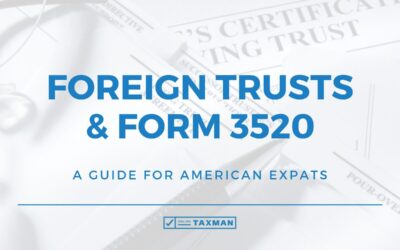Many S Corporation owners pay business expenses with personal funds and advance or reimburse themselves. At tax time, they would owe personal tax on the advance or reimbursement.
With an Accountable Plan, the S Corporation can classify expenses so that you won’t have to pay individual income tax on them.
Without an Accountable Plan, the reimbursement is added to the salary and reported on the employee’s Form W-2.
What Are Accountable Plans?
An accountable plan is a set of rules that determine whether an employer’s advances and reimbursements to employees are taxable.
If the advances or reimbursements meet the accountable plan criteria, they are not reported as wages on the employee’s W-2.
An accountable plan must meet all the following requirements:
- Expenses must have a business connection.
- Expenses must be substantiated by documentary evidence.
- Excess advances or reimbursements must be returned within a reasonable time.
We explain each requirement in more detail in a moment.
Tax Advantages For S Corporation Owners
An S Corp owner is both employer and employee of the company. If the company reimburses expenses to the employee without an accountable plan, the reimbursement increases the wages.
Increased wages reduce gross business revenue. However, the employee must report higher wages on the individual tax return and pay higher income tax. In addition, Social Security and Medicare taxes increase.
If owners do not reimburse themselves, they cannot claim a deduction for unreimbursed job-related expenses. The 2017 TCJA tax reform eliminated this deduction. Besides, many expats don’t itemize and take the standard deduction instead.
The accountable plan allows the business owner to shift the business expense deduction back to the business.
Take for example your cell phone that you pay personally but use 60% for business. As an employee, you can’t deduct the expense on your individual tax return. However, you as employer could reimburse yourself the business portion, and the business would write it off as expense.
Accountable Plan Requirements
As mentioned earlier, the plan must meet all three requirements for the IRS to allow it.
If it’s not in compliance with the Accountable Plan rules, it will be treated as a Non-Accountable Plan. This means that the reimbursement will be added to the employee’s wages on the W-2.
Accountable Plan Rules
There are three rules that accountable plans must follow:
1. The expense must have a business connection
Let’s say you buy a new camera but don’t use it for your business. The expense has no business connection and doesn’t qualify. If you however use the camera to take videos and photos for your business, it does have a business connection.
2. Expenses must be substantiated by documentary evidence
For example, to claim a meal as a business expense you need proof of it. Together with the receipt, you must record the business purpose and attendees.
3. Excess advances or reimbursements must be returned in a “timely” manner
A “reasonable” time can mean up until 30 days after taxes are filed but sometimes even sooner depending on how much money was involved.
What Expenses Can Be Included In An Accountable Plan?
Accountable Plans can include various employee-related expenses, for example:
- Travel expenses, including meals, either as expense or as per-diem rates for lodging, meals, incidentals
- Business entertaining
- Purchase of equipment and tools
- Subscription fees
- Professional dues
- Marketing and advertising expenses
- Internet
- Education, training, development expenses
- Home office expenses (standard rules apply)
- Coworking space expenses
- Forex fees.
Include all relevant business expenses and the rules for reimbursement in your plan. Make sure that they have a clear business connection to qualify.
Typically, expenses under an accountable plan are mixed-use – not 100% business or 100% personal. See the cell phone example above, or internet. If it’s 100% business expense, it should be paid directly by the business.
How To Set Up An Accountable Plan
Accountable plans are easy to set up. While they don’t even have to be in writing, we strongly encourage to document them properly.
They also offer great flexibility to what expenses to include.
In addition, you can define who they apply to. For example, it can reimburse certain expenses only for the owner but not for an employee.
You can simply write a reimbursement policy to explain how you reimburse expenses. Include which expenses and which employees qualify.
Can LLCs Use Accountable Plans?
LLC members are not considered employees, so they are not covered by accountable plans.
However, if you elected tax treatment as an S Corporation for your LLC, you could use this tax optimization strategy, just like a regular S Corp.
An LLC taxed as S Corp has other advantages. Mainly, it can reduce self-employment taxes. However, it has higher cost to maintain and file taxes.
If you are not familiar with the election and wonder if it’s a good option for your LLC, check out our post “When to switch from LLC to S Corp”.
Tax Optimization For S Corporations
As you can see, Accountable Plans can help to improve the tax situation of the S Corp owner without negatively affecting the business.
At Online Taxman and our sister company Global Expat Advisors, we have helped hundreds of entrepreneurs incorporate their business and optimize their taxes. Our expertise also includes reasonable salary calculation, paying and reporting US and non-US based contractors, entity structuring, and more.








